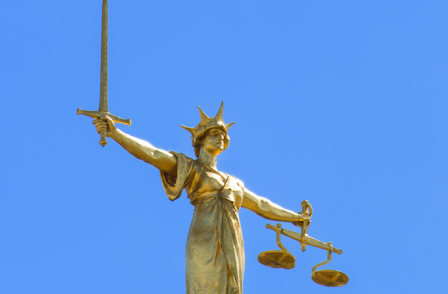
The jury in the trial of two tabloid journalists accused of paying a prison officer for stories has been warned that convicting them would deal a blow to democracy, a free press and the public’s right to know.
Tom Savage of the Daily Star Sunday and a former News of the World journalist who cannot be named for legal reasons stand accused of conspiring to commit misconduct in a public office by paying a prison officer for stories about the treatment in prison of killer Jon Venables.
They deny the charge as do former prison officer Scott Chapman and his ex-partner Lynn Gaffney.
Summing up the defence case for the News of the World journalist, John Butterfield QC said: “A key part of a democracy is a free press, because people in power don’t knowing what they’re up to. They don’t like us being able to have an opinion. And if we’re going to get to know it sometimes has to involve what would otherwise be some pretty shady business.
“If there’s any form of whistleblowing going on it is justifiable for money to change hands. Because it is necessary and appropriate to reimburse the whistleblower against the possibility they might be sacked for revealing bad practice.”
He said that the subject matter involved in the stories was "massively important" and so in the public interest.
“In short, there is a huge contrast when it comes to the prosecution position about public interest and our own…They call it a crime. We call it democracy.”
He said the actions of journalists like the accused enable “the mass of people to have some insight into faceless institutions which would quite prefer to do things in secret away from any possible scrutiny”.
He said: “These arrangements are how the press get their foot in the door so we the public can peer in through that door. Doors the establishment would prefer to stay firmly closed.
"Some people, somewhere have got to get their hands dirty for that to happen. And rewarding with money those who take a risk to reveal things in the public interest is of course going to be part of that.
"It’s a necessary weapon for a free press to have in its armoury."
Butterfield said that this is now a democracy operates, adding: “If a jury in this country could be persuaded that amounts to a criminal offence then I say plainly it would be a sad and a scary day.”
Contrasting the case of the prosecution with that of the defence, he said: “They call it a crime. We call it an open society.”
Butterfield said it was “absurd” to suggest that Venables had been “demonised" by the press coverage which arose from the leaks: “This is a man who is himself responsible for being regarded as a demon. It’s not what newspapers write about him.”
Venables was one of the two 10-year-old boys who killed toddler James Bulger.
Butterfield also spoke about the suggestion that Woodhill Prison had “suffered” as a result of the disclosures.
"What are we supposed to think – that it would make people less likely to want to go there. I’ve got news for the prosecution, the prisoners don’t want to be there in the first place."
Looking at the wider principles at stake, Butterfield said: “The issues this prosecution would seek to trample over are as serious as it gets in a democratic country.
“It is after all extraordinary and troubling in a supposedly free society to have journalists on trial for articles written in good faith the course of their job. Here not just one, but two.
“Because we need journalists to be brave. At times we need them to be pushing at the edges.
“You don’t have to take it from me. Ask the children of Rotherham.
"The scandal of child abuse utterly ignored by the authorities until a campaigning journalist opened it up to the light."
He said that the ability to pay public officials is a legitimate part of the normal business of journalism when it touches on serious issues.
And he noted that the MPs’ expenses scandal was exposed after a public official was paid to disclose the data.
He said: "If that had not happened the chances are we’d never have known that an MP claimed public money to pay for us to clean out his moat…
"Or that another made a similar claim for the upkeep of a duck island in his gardens.
"We’d never have had, you may think, half a dozen leading politicians convicted of criminal offences as we have subsequently seen.
"On the contrary, they’d still merrily have their noses in the trough."
He said: "Don't bank on ever getting to hear about matters like that again if a prosecution like this one is to be successful. If there is something that the powers that be don't want you to know they are going to say it is confidential.
"Journalists are obliged to pry into matters that are confidential. It is part of their normal and legitimate business.
"Indeed, it might be appropriate for journalists quite deliberately to break the law in the public interest. It seems there is a desire to clip the wings of journalists.
"But if the forces of the state can muzzle the press, there is a lot else which is precious which falls silent as well. The potential consequences of a conviction are as profound as it gets in a free society."
Butterfield also asked why the “foot soldiers” were being prosecuted rather than the “officer class”.
He said: “It is not the foot soldiers who have the power to authorise payments.”
Email pged@pressgazette.co.uk to point out mistakes, provide story tips or send in a letter for publication on our "Letters Page" blog
